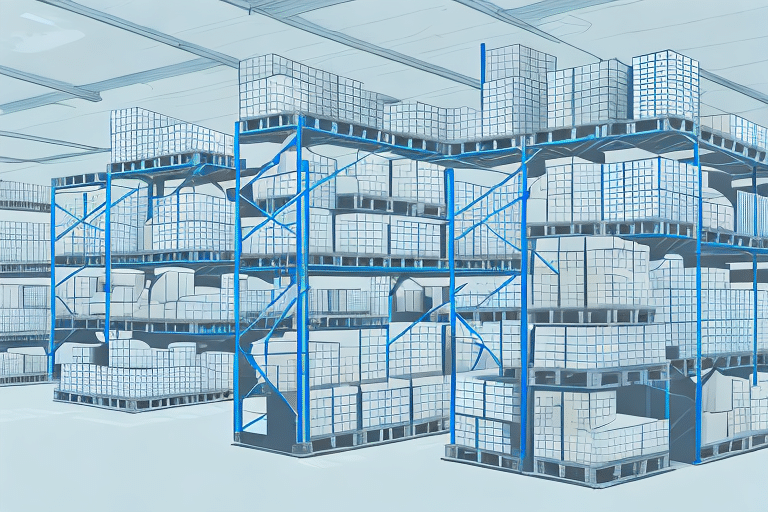Understanding 4PL Companies
4PL stands for Fourth-Party Logistics, a comprehensive approach to supply chain management where a single organization manages the entire supply chain on behalf of a client. Unlike traditional logistics providers, 4PL companies act as an integrator, overseeing not just transportation and warehousing but also coordinating all logistics activities to ensure seamless operations.
Definition and Role
4PL companies serve as the central hub for all logistics operations, providing a holistic solution that encompasses planning, implementation, and management of the supply chain. They leverage advanced technologies and industry expertise to optimize processes, enhance visibility, and drive efficiency across the entire supply chain.
4PL vs 3PL
While both 3PL (Third-Party Logistics) and 4PL providers offer valuable logistics services, there are key differences. 3PL companies typically focus on specific aspects of logistics, such as transportation or warehousing, providing targeted solutions. In contrast, 4PL companies offer a comprehensive, end-to-end supply chain management service, integrating and managing multiple 3PLs and other service providers to deliver a unified logistics strategy.
Benefits of 4PL Companies
Increased Efficiency
Partnering with a 4PL company can significantly enhance operational efficiency. By streamlining supply chain processes and eliminating redundancies, businesses can achieve faster turnaround times and more reliable delivery schedules.
Cost Savings
4PL providers leverage their extensive network and expertise to negotiate better rates with carriers and suppliers, leading to reduced transportation and warehousing costs. Additionally, the optimization of logistics operations minimizes waste and lowers overall supply chain expenses.
Advanced Technology and Analytics
4PL companies utilize cutting-edge technology and data analytics to provide real-time visibility into the supply chain. This enables proactive decision-making, predictive maintenance, and continuous improvement of logistics strategies.
Determining If Your Business Needs a 4PL
Supply Chain Complexity
If your business operates within a complex supply chain involving multiple stakeholders, regions, or product lines, a 4PL company can help manage and simplify these complexities, ensuring smooth and coordinated operations.
Expertise and Resources
Businesses lacking in-house logistics expertise or resources can benefit from the specialized knowledge and comprehensive services offered by 4PL providers. This allows companies to focus on their core competencies while leaving supply chain management to the experts.
Customized Logistics Strategies
Tailored Solutions
4PL companies design customized logistics strategies that align with the specific needs and goals of each business. This bespoke approach ensures that supply chain solutions are optimized for maximum efficiency and effectiveness.
Real-Time Visibility
With advanced tracking and monitoring systems, 4PL providers offer real-time visibility into supply chain operations. This transparency allows businesses to monitor performance, identify potential issues, and make informed decisions promptly.
Choosing the Right 4PL Partner
Experience and Expertise
Selecting a 4PL partner with a proven track record and extensive industry experience is crucial. Evaluate the provider’s expertise in your specific sector and their ability to handle the unique challenges of your supply chain.
Technology Capabilities
Ensure that the 4PL company utilizes robust technology platforms that can seamlessly integrate with your existing systems. Advanced technological capabilities are essential for achieving real-time visibility, data analytics, and efficient supply chain management.
Cost Considerations
Performance-Based Contracts
Negotiating performance-based contracts can help align the 4PL’s incentives with your business goals. By tying payments to specific performance metrics, you ensure that you only pay for services that deliver tangible value.
Hidden Fees
Be vigilant about potential hidden fees when working with a 4PL provider. Carefully review contracts to understand all costs involved, including additional services, expedited shipping, or special handling fees, to avoid unexpected expenses.
Future Trends in the 4PL Industry
Emerging Technologies
The future of the 4PL industry is being shaped by advancements in artificial intelligence, machine learning, and the Internet of Things (IoT). These technologies enhance predictive analytics, automate processes, and improve overall supply chain efficiency.
Impact on Businesses
As 4PL companies adopt new technologies and innovative practices, businesses will benefit from even greater efficiencies, reduced costs, and enhanced supply chain resilience. Staying informed about these trends is essential for leveraging the full potential of 4PL partnerships.
Real-Life Examples of Successful 4PL Partnerships
Numerous businesses have transformed their supply chain operations by partnering with 4PL companies. For instance, a leading retailer collaborated with a 4PL provider to implement a centralized logistics management system, resulting in a 20% reduction in logistics costs and improved delivery times. Similarly, an automotive manufacturer engaged a 4PL company to manage its global logistics, which enhanced supply chain visibility and reduced transportation expenses by 15%.
In the pharmaceutical industry, a major company partnered with a 4PL to handle complex supply chain logistics, achieving faster lead times and increased product availability. Additionally, a food and beverage company optimized its distribution network through a 4PL partnership, leading to improved delivery efficiency and cost savings.
These examples demonstrate the substantial benefits that 4PL companies can bring to various industries, highlighting the transformative impact of effective supply chain management.
Finding the Right 4PL Partner for Your Business Needs
Choosing the appropriate 4PL partner is a critical decision that can greatly influence your supply chain's success. Consider the following steps to ensure a good fit:
- Assess Experience: Look for a 4PL provider with experience in your industry and a proven track record of successful partnerships.
- Evaluate Technology: Ensure that the provider uses advanced technology platforms that can integrate with your systems and provide comprehensive supply chain visibility.
- Check References: Request references from other businesses that have worked with the 4PL to gauge their performance and reliability.
- Service Scope: Verify that the 4PL offers the range of services you require, from transportation and warehousing to analytics and strategic planning.
By carefully evaluating potential partners based on these criteria, you can select a 4PL provider that aligns with your business objectives and supports your supply chain needs effectively.
Cost Considerations When Working with a 4PL Company
Engaging a 4PL company involves various cost factors that businesses must consider:
Service Fees
4PL providers charge for their comprehensive services, which may include management fees, technology fees, and additional service charges. It’s essential to understand the fee structure and ensure it aligns with your budget and expected return on investment.
Cost-Benefit Analysis
Conduct a thorough cost-benefit analysis to determine the potential savings and efficiencies gained from a 4PL partnership compared to the associated costs. This analysis helps in making an informed decision about the financial viability of outsourcing your logistics operations.
Scalability
Consider the scalability of the 4PL services. As your business grows, the 4PL should be able to adjust their services accordingly without incurring disproportionate costs.
By carefully evaluating these cost considerations, businesses can ensure that partnering with a 4PL provider is financially advantageous and sustainable in the long term.






















